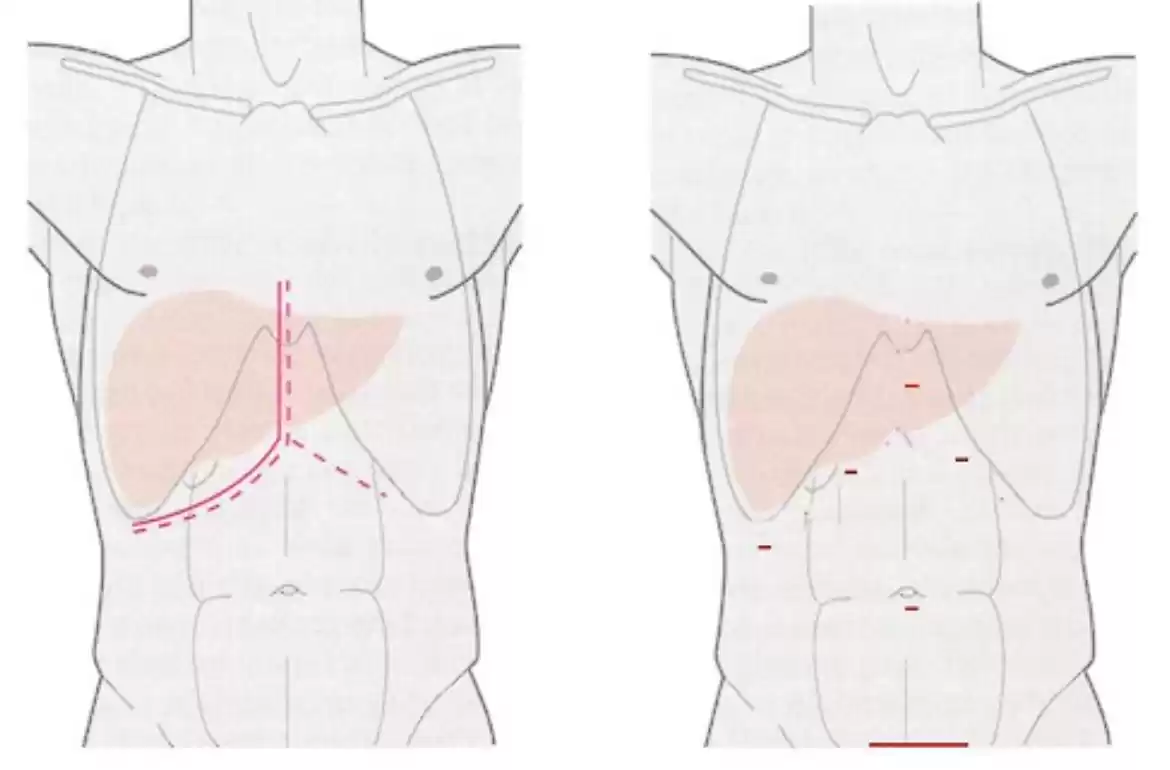
A liver transplant surgery is a surgical procedure that involves the replacement of a patient’s liver (whole or partial) from another person. It can used to remedy a host of adverse liver conditions and diseases, including those arising due to decompensated or diseased liver. Here are some of them along with their commonly associated symptoms: –
Liver conditions and their symptoms that may require Liver transplant surgery
Condition | Symptoms |
Tyrosinemia Type 1 | Unexpected fever Diarrhea Vomitting |
Hepatitis C | Sore muscles Nausea Itchy skin |
Hemochromatosis | Constant fatigue Sudden weight-loss Joint pain |
Biliary atresia | Darkened Urine Yellowing of the skin Excess bilirubin in the blood |
How is the liver transplant surgery performed?
Liver transplantation surgery is a definite cure for a majority of the conditions and diseases that arise in the liver. The exact approach of this surgical technique varies in accordance with the medical facility, but the basic procedure of it is pretty much the same. Here is a general idea of how it is carried out:
- The patient is laid down on the operation bed and sedated using anesthesia by the surgeon
- An inverted Y-shaped incision is created on the patient’s belly.
- Special tubes are inserted into the incision in order to drain the blood and fluids
- Important structures such as the inferior vena cava, the portal vein, the common bile duct, the hepatic artery, are carefully surgically detached from the liver by the surgeon
- The liver is then removed from the body (or dissected as per the requirement)
- The new liver is then placed back and the above-mentioned structures that were surgically detached is reattached to the new liver
- Incision is closed by the surgeon
Post-operative measures to undertake
Liver transplant surgery is a highly complex surgical procedure that may take a long time for the patient to recover after undergoing it. To ensure optimum post-operative care, here are some measures that could be undertaken –
- Appropriate dietary intake – The patient’s diet plan should include a rich supply of protein, followed by plenty of water.
- Routine Physical activities – As the patient has been in one posture for a long time, it is recommended for him or her to partake in physical activities on a regular basis. It must be noted though that heavy stress and exercise such as weightlifting might be harmful and the patient should avoid them at all costs.
- Regular health monitoring – Regular health monitoring activities can help the medical professionals detect any health-related problems before-hand and treat them.
Undergoing liver transplant surgery in India
India is considered to comprise of some of the best medical facilities for liver transplant surgery. So, consult the best liver transplant hospital in India that you know when going for a liver transplant surgery.


